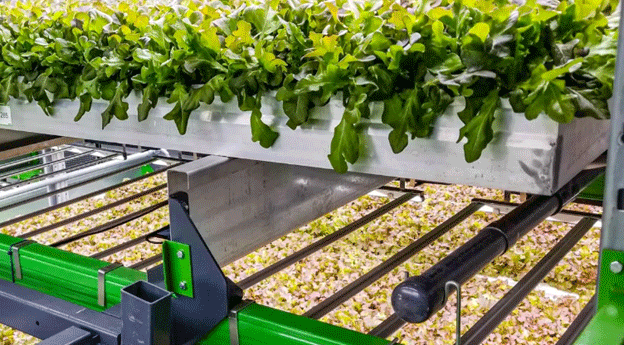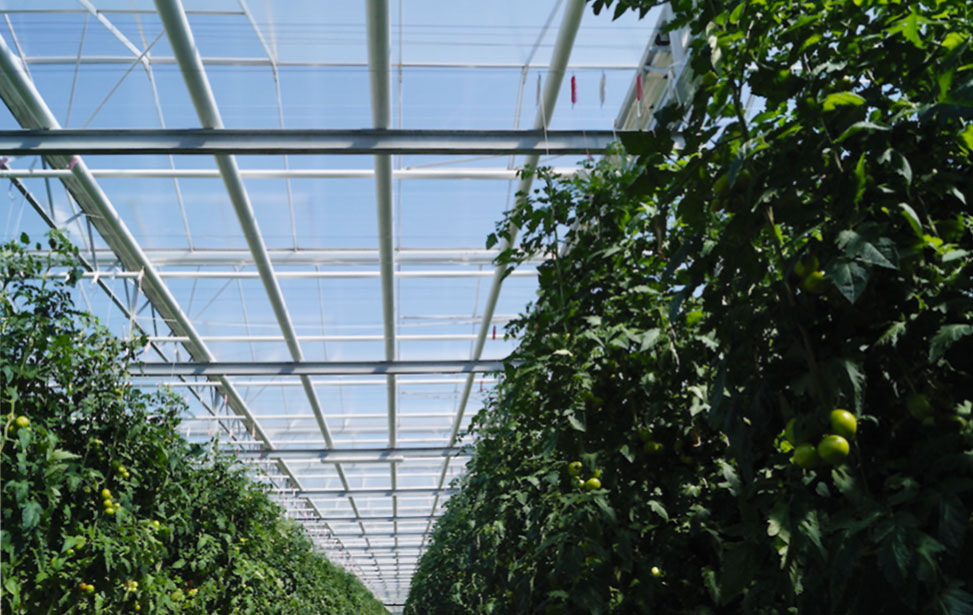The dream of transforming agriculture through vertical farming has been a topic of immense interest, attracting investors, tech enthusiasts, and even Hollywood celebrities. Bowery Farming, Inc., a prominent name in the indoor farming sector, exemplified this vision. Founded in 2015, Bowery aimed to revolutionize food production with pesticide-free, environmentally controlled urban farms that promised fresh, local produce year-round. Yet, despite raising over $700 million from investors, including Natalie Portman and Justin Timberlake, Bowery has now shut down operations and laid off nearly 200 employees.
The Promise of Vertical Farming
Vertical farming has long been celebrated for its potential to revolutionize agriculture. Using controlled-environment agriculture (CEA) techniques, vertical farms can produce crops in urban areas, minimizing the distance food travels from farm to fork and using significantly less water than traditional agriculture. Bowery’s farms were equipped with cutting-edge technology, allowing for precise adjustments to light, humidity, and nutrient delivery. The company expanded its reach to serve over 850 grocery stores, including Amazon and Walmart, providing leafy greens like kale, basil, and arugula.
Bowery’s Expansion and Celebrity Backing
Bowery’s growth trajectory appeared promising. In 2021, the company opened Farm X, a state-of-the-art innovation hub in Kearney, New Jersey, followed by a smart farm in Bethlehem, Pennsylvania, in 2022. The company’s goal was to scale up rapidly, securing $150 million in debt from KKR to fund expansion into metro areas like Atlanta and Dallas-Fort Worth. The anticipation was palpable: with celebrity endorsements and a valuation soaring to $2.3 billion, Bowery seemed like the epitome of ag-tech success.
Financial Struggles and Rising Costs
However, beneath the optimism, financial realities began to surface. The high cost of running energy-intensive indoor farms, coupled with a wavering consumer market for premium-priced produce, made profitability difficult. By late 2023, Bowery found itself unable to secure further financing, a familiar narrative in the vertical farming industry. As venture capital funds became scarcer and interest rates rose, the company struggled under the weight of its debt.
Last week, Bowery announced layoffs affecting 187 employees and the closure of operations in key locations. In Bethlehem, Pennsylvania, 104 people lost their jobs, while the Nottingham, Maryland facility shut down, impacting another 83 workers. Reports indicate that Bowery had attempted to find a buyer but failed to secure a deal. Consequently, the company has entered an Assignment for the Benefit of Creditors (ABC) process, managed by Sherwood Partners, in a bid to liquidate assets.
Challenges Facing Indoor Agriculture
Bowery is not the only indoor farming company to face significant hurdles. The sector has seen several closures over the past year due to rising energy costs, expensive infrastructure, and the economic downturn impacting investor confidence. The controlled environment agriculture industry relies heavily on high-tech equipment and substantial energy inputs, making it sensitive to fluctuations in electricity prices. Additionally, while consumers are increasingly interested in sustainably grown produce, they are often unwilling to pay the premium prices required to support the high costs of vertical farming.
The lack of long-term financial sustainability raises questions about the future of indoor farming. Even with celebrity endorsements and large-scale investments, companies like Bowery must balance innovation with economic feasibility. The reliance on venture capital has made the industry vulnerable to market fluctuations, and without consistent profitability, these businesses remain high-risk ventures.
Lessons for the Future of Ag-Tech
The story of Bowery Farming serves as a cautionary tale for the indoor agriculture industry. To succeed, companies must develop more energy-efficient technologies and lower operational costs. Moreover, strategic partnerships with renewable energy providers and continued innovation in crop selection and yield optimization are crucial. Vertical farms may need to diversify beyond leafy greens to more economically viable crops or explore hybrid models that integrate with traditional agriculture.
Bowery Farming’s closure is a sobering reminder of the challenges facing the vertical farming sector. Despite the appeal of growing food sustainably and locally, the financial model must be robust enough to weather economic downturns and the operational costs inherent to indoor farming. For the industry to thrive, a balance between technological innovation and financial stability is essential. As the ag-tech landscape evolves, the lessons learned from Bowery will be critical for future advancements.












